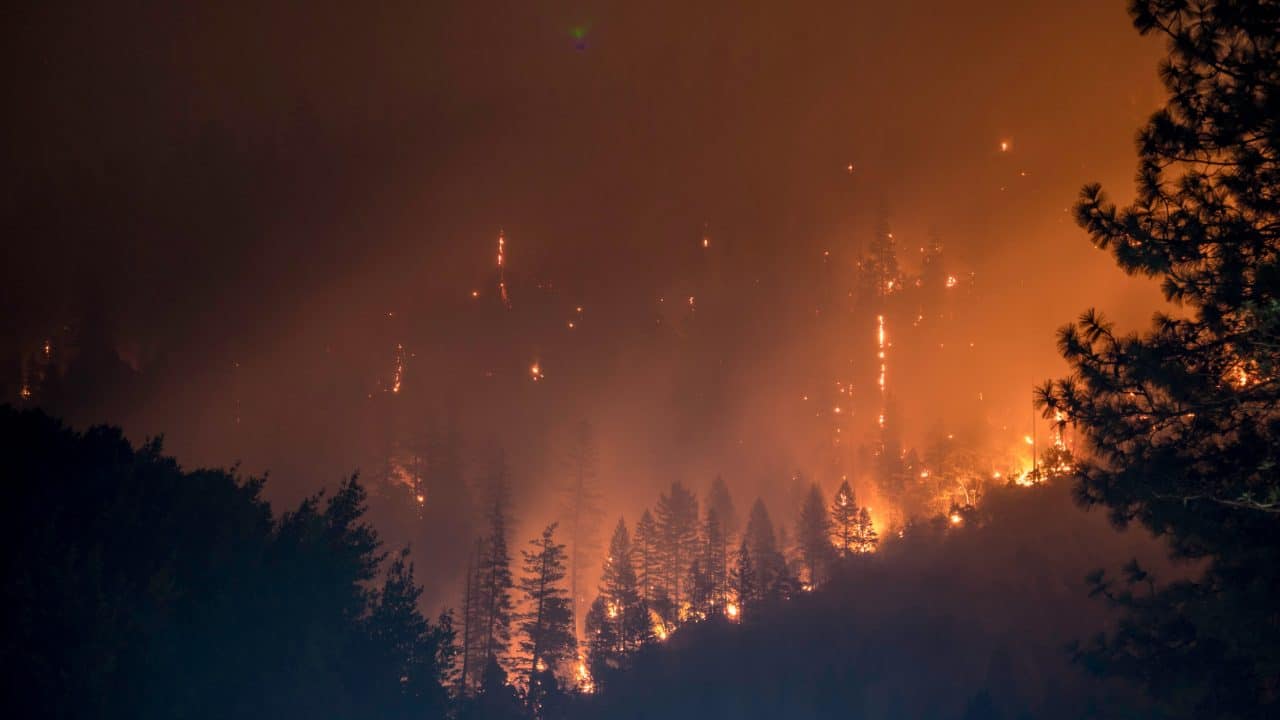While wildfires are more common in the western part of the United States, Georgia has a wildfire season as well.
These fires are more likely to occur in the summer and fall, and winds can carry smoke from these fires over a thousand miles away. So even if you aren’t directly near a wildfire, they can still affect you. This is especially true if you suffer from allergies and/or asthma.
Dangers of Smoke Exposure

A study published in 2012 examined the health effects of exposure to forest fire smoke. They found that smoke exposure was associated with an increase in:
- Self-reported symptoms
- Medication use
- Outpatient doctor visits and emergency room visits
- Hospital admissions
- Mortality
The association was strongest for asthma-related symptoms.
Protect Yourself from Wildfire Smoke
If you are someone who deals with allergies, asthma or both, it’s important to protect yourself from the dangers of wildfire smoke. Thankfully, there are several steps you can take to do just that:
- Monitor the Air Quality Index (AQI) in your area. The AQI is a system used to measure harmful particles in the air and aids government officials in communicating any risk to the public. The AQI has six levels ranging from Good to Hazardous. Keeping an eye on the current level can help limit your exposure to unhealthy air.
- Avoid exercising outdoors. Normally going for a walk somewhere like the Glenn Creek Nature Preserve is a great way to support your health. However, if you live in an area that is affected by wildfire smoke, it’s essential to stay indoors to avoid aggravating your symptoms. If the AQI is especially high, it’s possible that exercising outdoors can cause particles to get into your lung tissue and bloodstream and cause both short-term and long-term damage to the heart and lungs. Instead, try to find ways to exercise indoors by using free weights or finding videos online.
- Use an air filter. Certain particulates from wildfires are microscopic and can easily enter the home, even if your windows and doors are closed. Air filters can help keep the air inside your home safe.
- Know your risk. In addition to allergies and asthma, other factors and conditions can put you more at risk for health issues caused by wildfire smoke. Groups most at risk include the elderly, young children, and people with heart or lung conditions. If you belong to one of these groups, stay inside when the AQI is listed as “Unhealthy for Sensitive Groups.”
If you’d like to learn more about how to protect yourself from poor air quality conditions or wish to schedule an appointment with one of our providers, call ENT of Georgia North today.